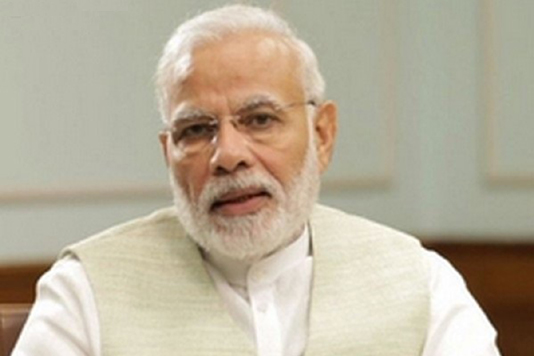By Aminul Islam Mirja
NEW DELHI, June 17, 2020 (BSS) – Indian Prime Minister Narendra Modi today said New Delhi wants peace with China but the country is capable of giving a “befitting reply” as the overnight border clashes killed 20 Indian soldiers and reportedly claimed lives of a higher number of soldiers on Chinese side.
“India wants peace but capable of giving befitting reply in any kind of situation if provoked,” he told a virtual meeting with chief ministers of different Indian states he called originally to review the COVID-19 situation in the country.
He added: “We never provoke anyone . . . there should be no doubt that India wants peace, but if provoked, India will provide an appropriate response”.
Modi also added that the sacrifice of Indian soldiers killed in the clash with Chinese troops at Galwan Valley in Ladakh would not go in vain.
Modi’s remarks came for the first time after the India-China border clash in eastern Ladakh on Monday night while opposition Congress leader Rahul Gandhi demanded government explanations on the violent face-off that killed 20 Indian soldiers including a colonel.
“The country (India) will be proud that our soldiers died fighting the Chinese…I would like to assure the nation that the sacrifice of our jawans will not be in vain,” the indian PM said in Hindi.
Modi, however, said the “unity and sovereignty” of the country was the most important issue while his office earlier today issued a statement calling an all-party meeting to discuss the situation on June 19.
Two minutes silence was observed at the onset of the meeting with the chief ministers as a mark of respect to the slain Indian soldiers while it was joined as well by home minister Amit Shah and defence minister Rajnath Singh.
Rajnath Singh earlier today reviewed the Ladakh Border situation in a meeting at South Block in Delhi with senior security and military officials.
They included chief of defence staff and military affairs department secretary General Bipin Rawat, army chief General M M Naravane, navy chief Admiral Karambir Singh and air force chief Air Marshal RKS Bhadauria.
“The loss of soldiers in Galwan is deeply disturbing and painful. Our soldiers displayed exemplary courage and valour in the line of duty and sacrificed their lives in the highest traditions of the Indian Army”, Singh later said in a tweet message.
Reports from Beijing, meanwhile, said the foreign ministers of China and India today held telephone talks over a deadly border clash, agreeing to “cool down” tensions as soon as possible.
Chinese foreign ministry said both sides agreed in the call between China’s Wang Yi and India’s Subrahmanyam Jaishankar to “deal fairly” with the events in the Galwan Valley and maintain peace in border areas.
State-run Xinhua reported Chinese State Councilor and Foreign Minister Wang Yi suggested Wednesday that China and India strengthen communication and coordination on properly addressing the border situation and jointly maintain the peace and tranquility in the border areas.
But Chinese foreign ministry spokesman Zhao Lijian earlier said the clash erupted after Indian soldiers “crossed the line, acted illegally, provoked and attacked the Chinese, resulting in both sides engaging in serious physical conflict and injury and death”.
According to Indian officials, their soldiers were hit with clubs studded with nails and stones during a brawl that erupted in the remote Galwan Valley, high in the mountains where India’s Ladakh region borders the Aksai Chin region captured by China during the 1962 war. Zhao, however, said he did not know of any Chinese casualties, although India’s PTI news agency quoting “officials” said the clash killed 35 Chinese soldiers, a piece of information they attributed to “US intelligence”.
He said the overall situation at the border was stable and controllable.
Under an existing agreement between the two nuclear-armed neighbours, no shots are fired at the border, but there have been fisticuffs in recent years between border patrols.
International media outlets described the India-China frontier violence as the worst clash in decades and observed that the nuclear-armed rivals were increasingly assertive toward neighbors, risking open conflict while they contested their Himalayan border for generations.
According to media reports that tensions between the two sides erupted in early May following clashes between Indian and Chinese troops in the Sikkim and Ladakh sectors of the Line of Actual Control (LAC).
Both New Delhi and Beijing at that time mobilized extra troops to the borders leading up to the face-off in Galwan Valley on Monday night.
Hundreds of Indian and Chinese troops have been facing each other since then at three or four locations on the disputed border in the uninhabited, barren mountains of Ladakh.



